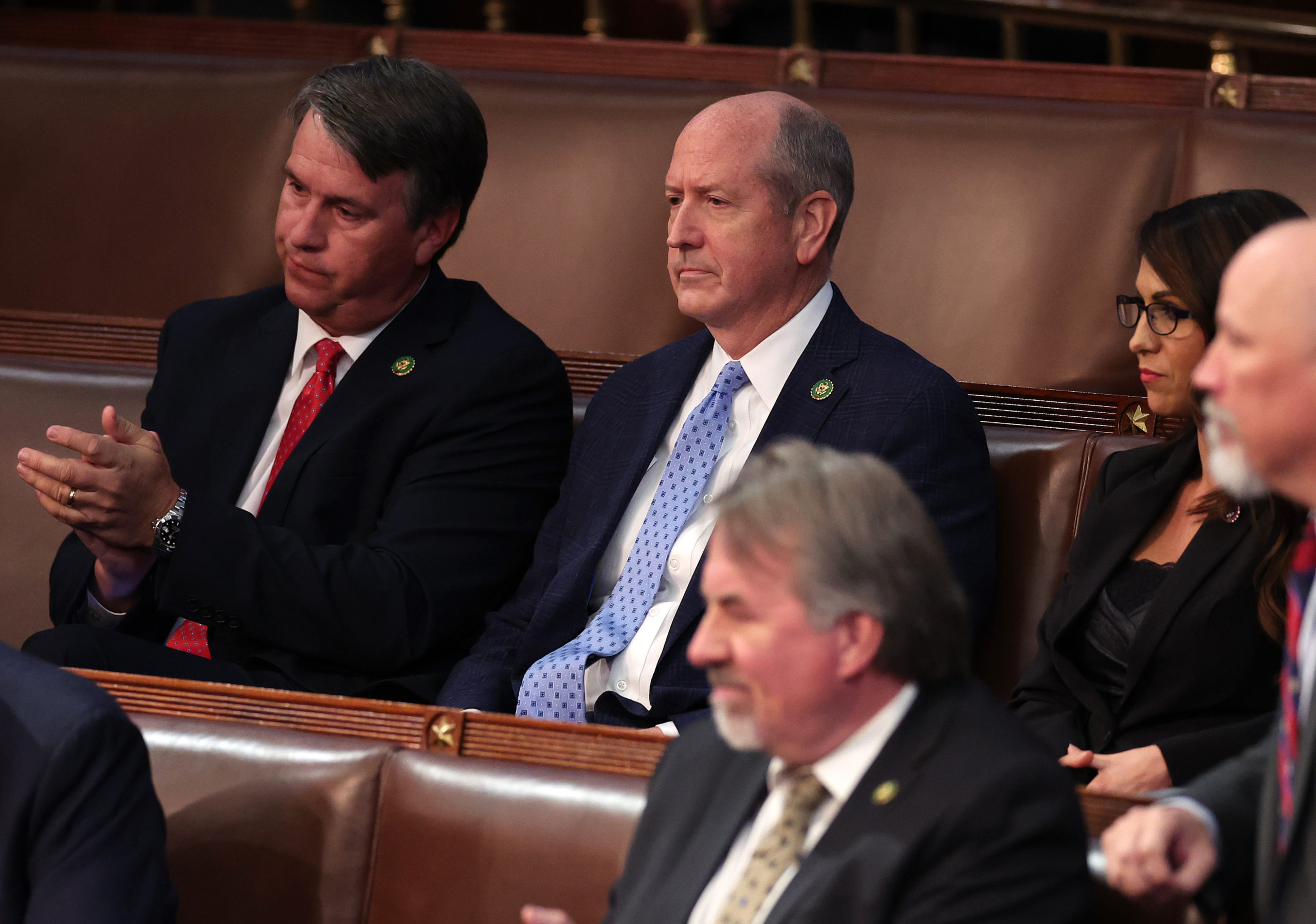Twenty House Republicans who initially opposed a Kevin McCarthy speakership extracted a slew of concessions from the Californian in exchange for their votes, devolving power away from chamber leadership and back toward rank-and-file members as well as themselves personally.
On the 12th and 13th speaker ballots, 15 Republicans flipped to support McCarthy. They cited negotiations between the Californian’s allies and some of the holdouts that will give members of the House Freedom Caucus representation on key committees, cut spending, and schedule key bills for votes. The complete terms of the agreement have not been fully released, although bits and pieces have been made public. The process has rankled some members of the Republican conference who argue that the agreement gives the Freedom Caucus an unfair level of influence in the lower chamber.
The official House rules package, which all but one Republican voted for, passed Monday. It includes a single member motion to vacate the chair as well as a requirement that tax increases receive 60% support before becoming law. The rules also require that legislation have only one subject, and give members 72 hours to read bills. Republicans are also creating a new Subcommittee on the Weaponization of the Federal Government under the House Judiciary Committee.
“You are going to have to trust the people that are put on this committee, and I’ll tell you what, if there’s something fishy going on, I’ll come out of the SCIF and tell you, but a lot of it will be behind closed doors, it will be classified information. If we find anything illegal or unconstitutional, we will bring it forward,” Republican Kentucky Rep. Thomas Massie told Tucker Carlson of the committee.
However, most provisions negotiated by the leadership team and the GOP holdouts are not included in the rules package voted on by members.

WASHINGTON, DC – JANUARY 06: U.S. Rep.-elect Dan Bishop (R-NC) prepares to vote in the House Chamber during the fourth day of elections for Speaker of the House at the U.S. Capitol Building on January 06, 2023 in Washington, DC. (Photo by Win McNamee/Getty Images)
“It has to do with personnel, how members of the conference will be appropriately distributed to key committees. It is about policy imperatives. There are critical issues that we must address,” North Carolina Rep. Dan Bishop told reporters Friday. (RELATED: Here’s Why 15 Republicans Flipped Their Support To Kevin McCarthy)
McCarthy named Florida Rep. Byron Donalds to the GOP Steering Committee over the weekend, making him the second Freedom Caucus member, along with Arizona Rep. Debbie Lesko, on the panel. The Steering Committee doles out committee assignments to the Republican conference writ large. The Steering Committee chose Tennessee Rep. Mark Green, also a member of the Freedom Caucus, to lead the House Homeland Security Committee on Monday. Green beat out Texas Rep. Dan Crenshaw, a McCarthy ally and staunch critic of the Freedom Caucus, for the gavel.
“They should be represented like all the other caucuses, but they shouldn’t have more than other members have. We should have equal representation on these committees,” New York Rep. Nicole Malliotakis told The Dispatch of Freedom Caucus committee appointments. “I think that’s probably where a lot of members will draw the line.”
— Rep. Mary Miller (@RepMaryMiller) January 7, 2023
Another provision, intended to balance the federal budget within 10 years, would freeze the Fiscal Year 2024 budget at FY2022 levels. This could lead to steep defense cuts, since the FY 2022 budget included $782 billion in defense spending, while the FY2023 budget raised that number to $858 billion. Key Republicans like incoming Appropriation Committee chairwoman Kay Granger of Texas are pledging to oppose any defense cuts, although the plank still has some members nervous.
“We don’t want to go back to sequestration. That would be very damaging to our military in a very dangerous world,” incoming House Foreign Affairs Committee chairman Michael McCaul of Texas told the Daily Caller.
“What we need to have conversations on is how that breaks down into defense and non-defense. Those still have to be had. I can tell you it won’t be on the backs of our troops,” Florida Rep. Mike Waltz added.
Texas Rep. Tony Gonzales cited the possibility of defense cuts in a Sunday interview explaining his lone GOP opposition to the rules package.
“When you have aggressive Russia and Ukraine, you’ve got a growing threat of China in the Pacific, you know, I’m going to visit Taiwan here in a couple of weeks, how am I going to look at our allies in the eye and say, I need you to increase your defense budget, but yet America is going to decrease ours,” he told Margaret Brennan on “Face the Nation.”












